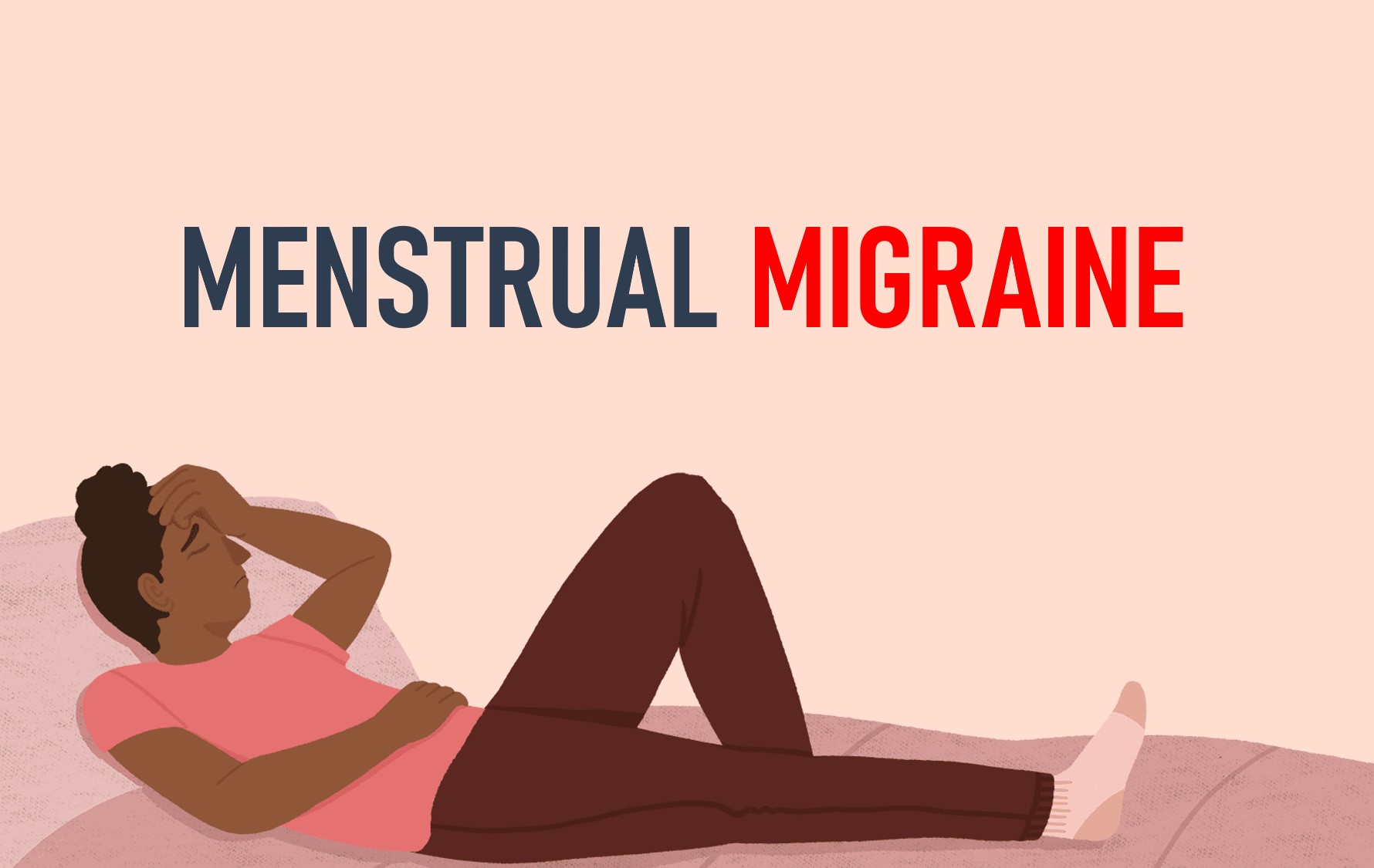Migraine strikes more women than men. Women suffer from migraine three times as often as men. One of the reason for this is the hormonal make-up between men and women.
“More than 50% of the women who suffer from migraine report an association between their migraine and their monthly cycle,” says the research.
Being a woman you might have noticed that for some, migraines are likely to hit either just before your period or right after the period. This headache or migraine is called menstrual migraine. Your levels of estrogen and progesterone, drop before the start of the period and that’s where migraines are most likely to happen.
Symptoms
The menstrual migraine’s symptoms are similar to migraine without aura. It begins as a one-sided, throbbing headache accompanied by nausea, vomiting, or sensitivity to bright lights and sounds. An aura may precede the menstrual migraine.
Treatment for Menstrual Migraine
In general, menstrual migraine can be effectively managed with similar treatment strategies used for non-menstrual migraines. In both the migraines, behavioural management is an important concept. Menstruation is one of many factors and one of many potential migraine trigger factors that puts women at risk for migraine.
Most of the menstrual migraines are treated with acute medications. While sometimes the attacks are very frequent, severe at that time preventive treatments may be required.
As you review these, remember that all medications have side effects, and may affect every individual differently. Hence you should consult a neurologist for menstrual migraine.
Acute Treatment – Commonly used medications are nonsteroidal anti-inflammatory drugs (NSAIDs), the triptans, and certain other drugs. If severe attacks cannot be controlled by these medications, it is recommended to consult a neurologist and follow their procedures and medications.
Preventive Treatment – Women with very frequent and severe attacks are candidates for preventive therapy. For sufferers taking preventive medications who experience migraine attacks that break through the preventive therapy perimenstrually, the dose can be raised prior to menstruation.
Check with your neurologist before using any supplements as they are not regulated like prescription medicines and they may contain substances that are not safe.
Wrapping Up…
As there is a lack of substantial evidence to prove the exact cause of menopausal migraine, no specific therapies are indicated. Neurologists may prescribe the common medications that are used in young women with menstrual migraine to some extent. As stress is also considered to be a cause of migraine headache in menopausal women, drugs that act on biological stress mechanisms may be prescribed.








